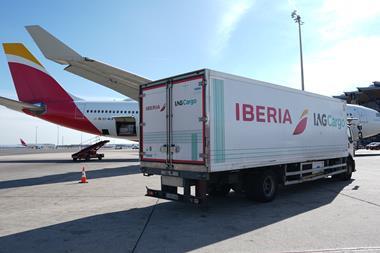UPDATE: Brussels Airport saw cargo volumes decline in July as airlines reduced services and cancelled flights in response to weakening demand.
The European airport saw total cargo volumes decline by 8.8% year on year in July to 39,689 tons. The largest decrease in percentage terms was felt by its belly cargo business, which was 16.5% down on a year earlier to 9,827 tons.
Full freighter demand was down 9.8% year on year to 12,799 tons and integrator volumes slid 2.9% to 17,063 tons.
The airport blamed the decline on companies ceasing operations and the cancellation of flights as a result of business decisions and the economic climate in Asia.
Brussels Airport head of cargo Steven Polmans added that July 2015 had been a particularly strong month, with volumes up by almost 20%
It said the Asian economic climate was also to blame for the downturn in integrator demand.
In its results for June, the airport revealed that KF Aerospace, which started flights to Brussels Airport in 2015, had ceased operations to the airport, Yangtze River Express has transferred part of its activities to Schiphol and Saudia Cargo has gradually reduced its operations.
KF Aerospace had launched the three times a week transatlantic service from Toronto and Moncton to Brussels last year to cater for live items, perishables, pharmaceuticals, and other high value goods seamlessly across North America and into Europe. The service utilised a DC10-30 freighter.
A KF Aerospace spokesperson said it had announced in March 2016 that it was ceasing those operations as it was unable to secure sufficient volumes at a profitable margin.
The aircraft and crew were transferred to flying on behalf of Solar Cargo out of Miami, Florida into South American destinations such as Lima, Peru; Bogota, Columbia; and Caracas, Venezuela; along with charter services. That dedicated service started in April 2016.
Polmans said that Yangtze announced heavy maintenance on one of their aircraft, reducing their frequencies to Brussels, and to avoid having only one frequency in Brussels, moved that flight to Amsterdam.
However, as of mid August, the airline will resume normal operations at Brussels.
Saudi has been reducing operations at Brussels for the last five years but other Gulf carriers have entered the market and increased calls at the Belgian airport, improving its connections with the Middle East.
"Although we regret to see that the once biggest cargo carrier at Brussels reduced their operations that much, we are glad that every reduction was followed by an increase in frequencies or a new airline entering the market," said Polmans.
"At this moment, Saudia increased frequencies again, so they remain very welcome and we will see what happens in future."










